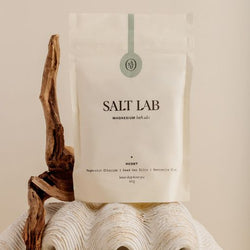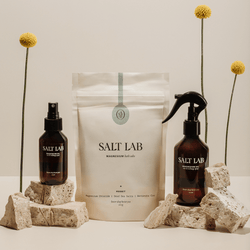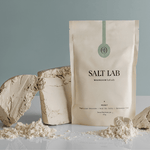Sourcing from the dead sea
The deep sea is a popular location for magnesium suppliers to source their materials, it’s not the best choice for our high standards. Extracting magnesium from these depths to meet increasing demand brings significant environmental and ethical concerns. These include habitat destruction, which disrupts delicate marine ecosystems and slow ecosystem recovery, making it hard for these environments to bounce back.
Deep sea mining has resulted in habitat destruction causing irreparable damage to fragile and poorly understood ecosystems. Mining activities, such as dredging or seabed disruption is destroying habitats, disrupting migration patterns, and harming deep-sea species, some of which may be unique and endemic to their environment.
Furthermore, deep-sea ecosystems have limited capacity for recovery from these efforts. The slow growth rates of deep-sea organisms and the lack of nutrient input mean that damage caused by mining operations could have long-lasting or permanent consequences for these ecosystems, something we do not stand for!
Chemical pollution
Extracting minerals from the deep sea often involves using chemicals and machinery that can release pollutants into the water and your magnesium. This also negatively impacts the environment as these pollutants can have detrimental effects on marine life, including disrupting reproductive cycles, damaging sensitive habitats, and bioaccumulating in the food chain, potentially posing risks to human health.
Given these concerns, we along with many environmentalists and scientists argue that the potential risks associated with deep-sea mining outweigh the benefits, especially considering alternative sources of magnesium like the Tibetan Sea, and the importance of preserving deep-sea ecosystems for future generations.

The Tibetan Plateau
Alternatively, extracting magnesium from the Tibetan Plateau's saline lakes offers benefits such as abundant resources, lower environmental impact, renewable sourcing, local economic development, research opportunities, and reduced carbon footprint during transportation.
The Tibetan Plateau has abundant resources, home to numerous saline lakes containing significant reserves of magnesium. These lakes, such as Qinghai Lake and Namtso Lake, have high concentrations of magnesium-rich brines, making them attractive sources for magnesium extraction. Utilising these abundant resources could help meet the growing demand for magnesium without resorting to environmentally damaging mining practices. Compared to deep-sea mining, extracting magnesium from saline lakes on the Tibetan Plateau has a lower environmental footprint, as methods are less invasive than seabed dredging or disruption. This approach minimises habitat destruction and reduces the risk of chemical pollution in marine ecosystems!
The saline lakes on the Tibetan Plateau are replenished by precipitation and runoff, meaning that magnesium extraction from these sources is more sustainable in the long term. Unlike finite deep-sea mineral deposits, the magnesium content in these lakes can be continuously replenished through natural processes, provided that extraction rates are managed responsibly.
As an added bonus, our Magnesium contains no bromides, microplastics, toxic waste, or metals, safeguarding both health and environmental well-being. It is also free from any oils or gas remnants derived from drilling processes, further enhancing its appeal and reliability.
We are committed to restoring balance to people AND the planet, meaning that what we've taken out, we have to put back in! Which is why, as a part of our sustainability mission, we source our magnesium chloride flakes from the Tibetan Plateau that boasts ancient mineral deposits high in magnesium!
















